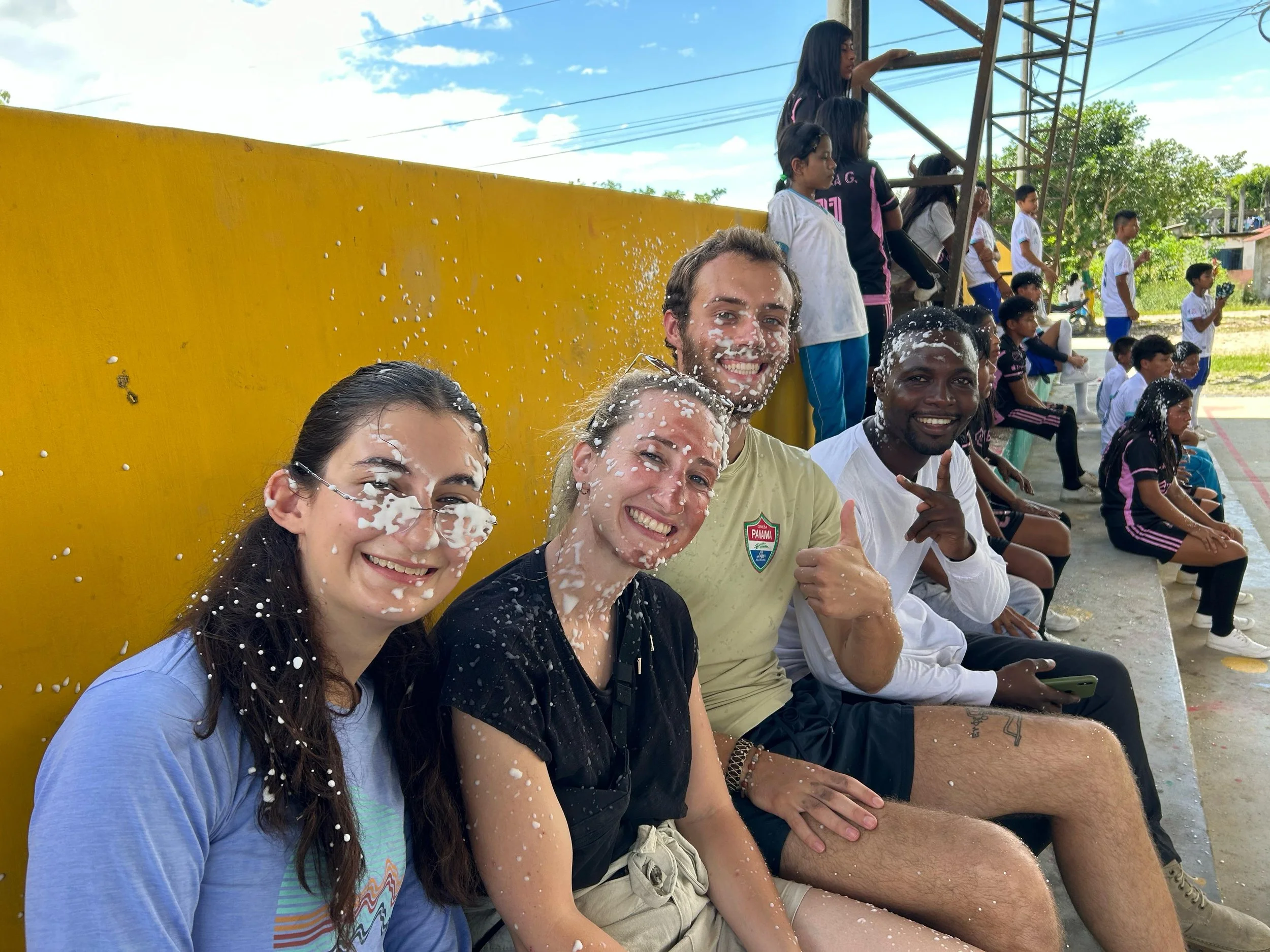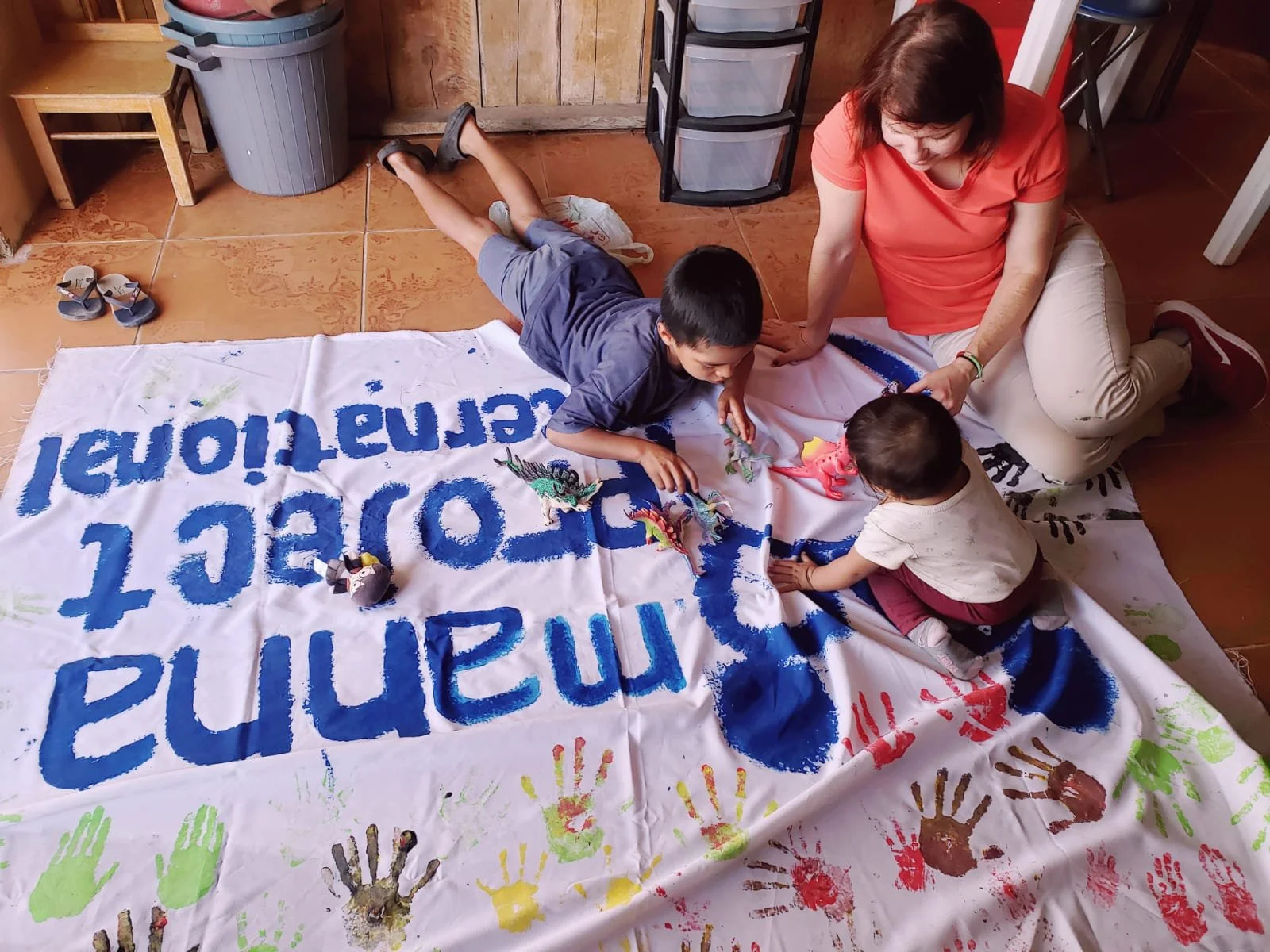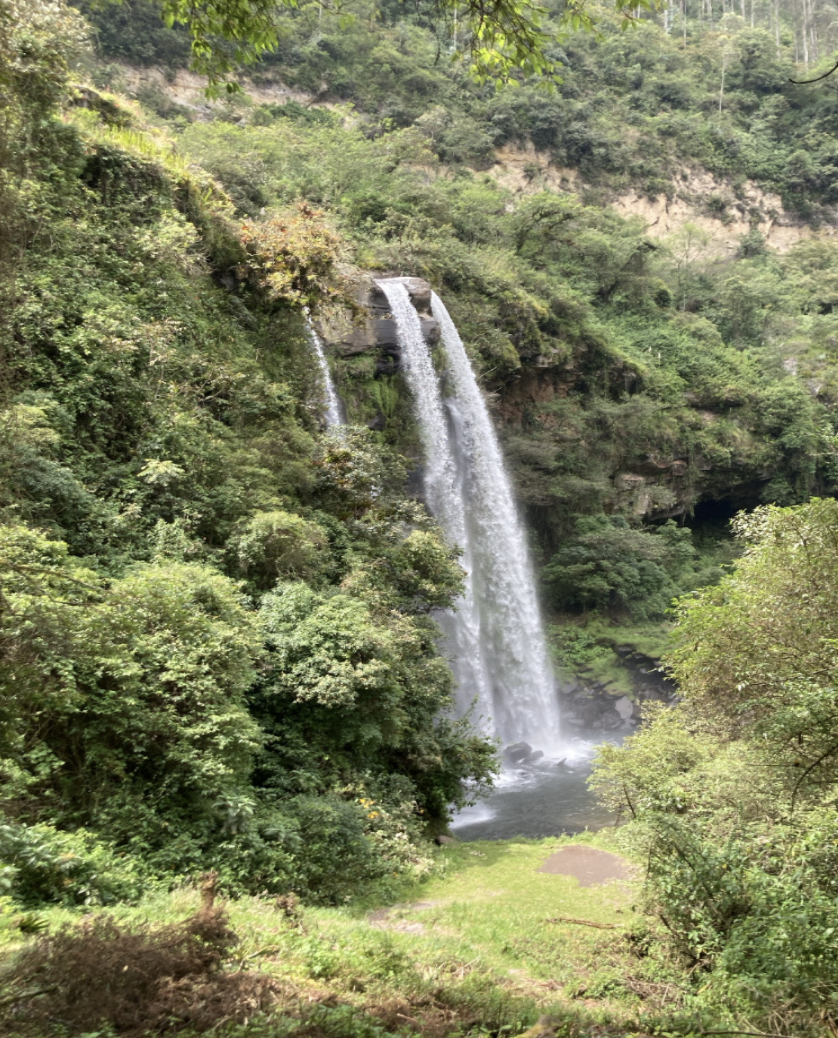By: Ye Oo
The first thing we noticed about Ecuador were the amazing views of mountains and potential hiking spots. If you love to hike and enjoy the scenery of nature, Ecuador is full of places to enjoy just that. The breathtaking sight from above is something that can not be missed. Personally, I love the serenity and tranquility of being one with nature. It can be very rewarding after a stressful week.
The first weekend in Ecuador, the program directors and staff visited their first waterfall in Rumibosque. The second hike was in Molinuco, which was my first waterfall hike in Ecuador, and possibly my favorite. With the help of a local volunteer, we were able to obtain wristbands that allowed us to go on the hiking trail. The overall hike lasted about three hours, an hour and a half going up and down. This included rest time we took in between to take everything in.
On the way up, we stopped by a small waterfall which had a lake that was suitable for swimming. The water was too cold for swimming on that day, but it was still worth taking a rest for a few minutes before continuing hiking to the main waterfall. When we got to the main waterfall, I was amazed by how close we were able to get to it. At the bottom of the waterfall was a little bridge to walk past the waterfall. On the bridge, you can feel the mist from the waterfall which was very refreshing. We went on a weekend and to my surprise, there were not that many hikers so we were able to take in the quietness of nature.
Hiking up was challenging, but after reaching the waterfall, the view makes it all worth it. Some advice I would give to new hikers: keep in mind the change in altitude in Ecuador, make sure you have enough water to keep you hydrated, bring snacks and fruits along, make time to rest and enjoy the view, dress appropriately, and lastly, take plenty of pictures for memories. For first time hikers, I would suggest Molinuco because the path is pretty straightforward and easy to follow.











